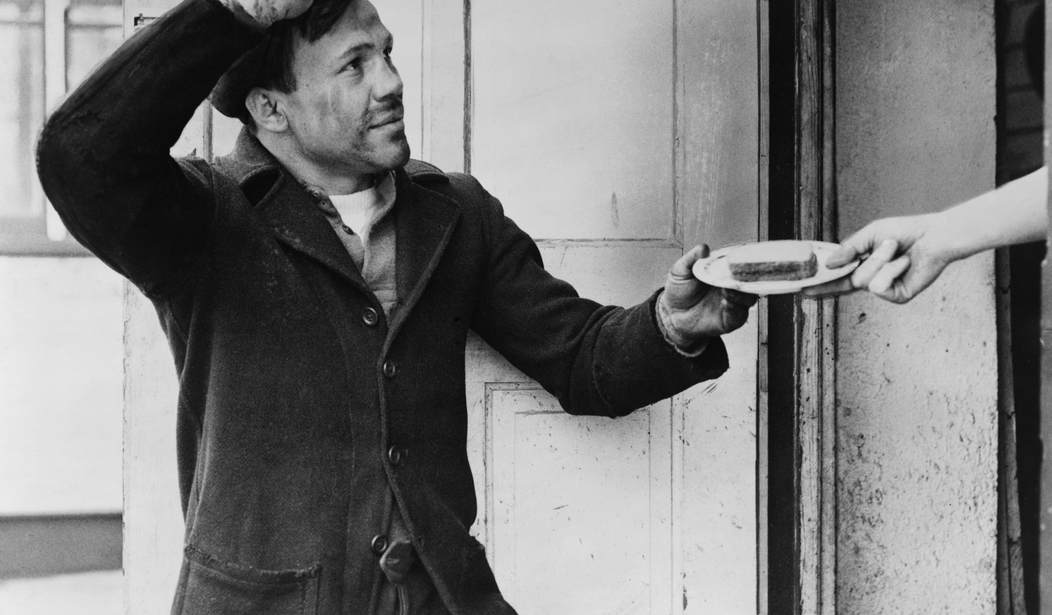It can be summed up in a phrase: get a job, you lazy bum:
Since 2008, the food stamp caseload of adults without dependents who are able-bodied has more than doubled nationally, swelling from nearly 2 million recipients in 2008 to around 5 million today. They gained notoriety when Fox News aired a documentary on food stamps featuring 29-year-old Jason Greenslate, a Californian who reported that he spends his time surfing and playing in his rock band, all the while receiving benefits from the food stamp program.
In response to the growth in food stamp dependence, Maine’s governor, Paul LePage, recently established work requirements on recipients who are without dependents and able-bodied. In Maine, all able-bodied adults without dependents in the food stamp program are now required to take a job, participate in training, or perform community service.
Job openings for lower-skill workers are abundant in Maine, and for those ABAWD recipients who cannot find immediate employment, Maine offers both training and community service slots. But despite vigorous outreach efforts by the government to encourage participation, most childless adult recipients in Maine refused to participate in training or even to perform community service for six hours per week. When ABAWD recipients refused to participate, their food stamp benefits ceased.
So how’d that work out?
In the first three months after Maine’s work policy went into effect, its caseload of able-bodied adults without dependents plummeted by 80 percent, falling from 13,332 recipients in Dec. 2014 to 2,678 in March 2015.
This rapid drop in welfare dependence has a historical precedent: When work requirements were established in the Aid to Families with Dependent Children (AFDC) program in the 1990s, nationwide caseloads dropped by almost as much, albeit over a few years rather than a few months.
The Maine food stamp work requirement is sound public policy. Government should aid those in need, but welfare should not be a one-way handout. Nearly nine out of ten Americans believe that able-bodied, non-elderly adults who receive cash, food, or housing assistance from the government should be required to work or prepare for work as a condition of receiving aid.
LePage’s reform puts the public’s convictions into action. The Maine reforms recognize that giving welfare to those who refuse to take steps to help themselves is unfair to taxpayers and fosters a harmful dependence among beneficiaries.
What’s depressing is that we have to re-learn this lesson once every generation.








Join the conversation as a VIP Member